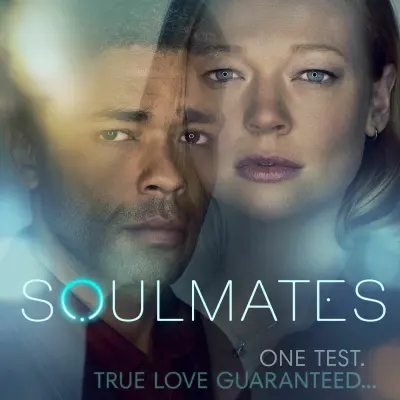AMC's Soulmates displays an alarming lack of creativity after a promising start
-

"In sci-fi, there are few things more disappointing than a story planted in fertile ground only to bear sour fruit," Shannon Miller says of AMC's six-part anthology series. "Take, for example, the well-examined idea of soulmates: Many have attempted to mesh idyllic romance with scientific rigidity, with varying results. The favorable iterations among them—for instance, Eternal Sunshine Of The Spotless Mind or Philip Wang’s Everything Before Us—use tools of fantasy to explore very real ideologies that make love and belonging so marvelously complex, like free will or the pressures of societal norms. Soulmates, AMC’s newest anthology offering, makes the barest of attempts to do as much, presenting six completely different stories that are tenuously connected by the idea that every person has a genetically predetermined soulmate. That’s six chances to traverse somewhat untrodden ground, six opportunities to craft stories that are uniquely human, or on the other end of the spectrum, courageously unorthodox. In short, this was a chance to say something different or intriguing about human connection."
ALSO:
- Soulmates doesn't trust its own strengths: "Over the course of six independent episodes, this first anthology season builds a dramatic framework around the existence of what everyone refers to in conversation as 'the test,' a technological development that accesses a person’s genetic makeup to determine their ideal partner," says Steve Greene. "That test (and the results that come from it) leads people to reckon with the actions they take in the face of such knowledge. Married couples decide whether they should stick out their existing relationship, single folks bide their time until their intended happens to take the test too, newly matched couples debate the relative speed of their commitment to each other. In theory, that’s really all that a TV show should need. That tension is the intended guiding force of Soulmates, but there’s a creeping need in a lot of these episodes to snag onto some other hook. There’s nothing inherently wrong with using the test more as a guide than an anchor. But more often than not, Soulmates spends so much time building out from its theoretical premise that it doesn’t always give a reason for a viewer to care about the times it looks inward."
- Soulmates feels like a hollow echo of Black Mirror: "The pitch is confusing both grammatically and as a matter of dramatic tension – what mystery is there to love if it’s written in your DNA?" says Adrian Horton. "Taking the efficacy of the test as fact raises a host of a questions: is the soulmate bond inherently romantic? What if the person is of a much different age, or lives halfway across the world, or hasn’t taken the test at all? What risk is there in choosing love that is scientifically certain? Over six individual stories, Soulmates only partly resolves this confusion. At its best, Soulmates is a slickly filmed, intriguing spin on the evergreen questions of commitment, monogamy and how well you can ever know another person. But too often Soulmates, co-created by Brett Goldstein (Ted Lasso) and Will Bridges (writer of Black Mirror episodes Shut Up and Dance and USS Callister) ends up feeling like hollow echoes of Black Mirror – a show too enthralled by its own potential to imagine the darkest or unforeseen implications of soul certainty to remember the character specificity inherent in romantic love."
- The Black Mirror–ish premise sustains Soulmates’ universe surprisingly well: "Soulmates gives its characters the space to ask fascinating questions about romance without settling on a single message or 'right' way to find love," says Alexis Nedd. "None of the episodes feel preachy or end on a note that suggests its characters have found the secret to relationships. The show leans in on human error, unpredictability, and choice as its characters’ guiding principles and rarely treats the certainty of finding one’s soulmate as the end-all goal for their lives."
- Soulmates should be called "Blah Mirror": "Largely pessimistic and domestic-minded, the series has been unable to escape comparisons to Black Mirror," says Inkoo Kang. "With one exception, Soulmates seldom recalls the creative bankruptcy of the Netflix show’s later seasons, but it never remotely reaches the visionary brilliance of its earlier years, either. Soulmates is further hampered by its squandering of the anthology drama’s freedoms in the first half of its six-episode season, which takes place in too-similar bougie, married, mostly hetero milieus. A better name for the show might be Blah Mirror."
TOPICS: Soulmates, AMC, Brett Goldstein, Will Bridges
